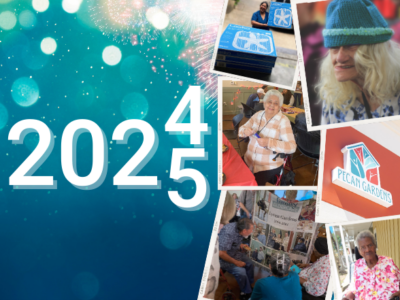Juneteenth is one of the most important anniversaries in American history. It commemorates the end of chattel slavery for more than 250,000 Black Americans in Texas who remained enslaved two years after the Emancipation Proclamation was made effective. 165 years later, people across the United States continue to gather on the 19th of June in celebration of Black history, Black culture, and Black resilience.
The irony of Juneteenth being celebrated as a federal holiday cannot be lost on us. Juneteenth has become a time of celebration in this country despite the violence, pain, and generations of trauma Black Americans have faced because of systemic racism. We celebrate Juneteenth as a nation that has not put a stop to housing and education apartheid. We celebrate Juneteenth as a nation that is still banning critical race theory in schools, blocking reparations legislation, and creating voting laws that disproportionately target Black communities. We celebrate Juneteenth as a nation that is still “waging a war on drugs”, over incarcerating Black men, and allowing state-sanctioned violence and a police brutality to go unchallenged.
Black liberation, in its totality, must be prioritized. Preserving, maintaining, and celebrating Blackness must be prioritized. And this can’t just be during Black History Month, Black Music month, or Juneteenth. Resiliency, joy, and excellence are a part of everyday Black life—it’s ancestral, ever present, and has always existed despite oppression and racism. Recognizing, acknowledging, and celebrating the duality of the Black experience is a vital part of continuing the Black liberation movement.
For me, Juneteenth has always represented my ancestors celebrating the possibilities of themselves. Their ingenuity became the driving force of uplifting beauty, creativity, and triumph within Black culture. In a society that typically focuses on deviance, trauma, and pathology of Black people, celebrating the endurance of Black vibrancy is a revolutionary act of resistance.
Amplifying Black joy amid ongoing oppression and inequality is in many ways the core of what it means to be Black in America. Every hardship that the Black community has faced has been met with a genesis of art, creativity, and innovation. This country gave my ancestors dying soil, and they developed an agricultural economy. This country forced my ancestors to spend long, laborious hours in the fields and their work songs birthed the Blues. This country gave my ancestors segregation, and they built Historically Black Colleges and Universities. Not only is resilience hardwired into our DNA, but so is Black excellence.
As I write this, I can’t help but feel an overwhelming sense of reverence for my community. I hope you’ll join me this Juneteenth in honoring the following:
- The ancestors who survived the middle passage; and the generations after them who never surrendered their dignity or humanity during a lifetime of hardship.
- The ancestors who did not survive the middle passage; and instead, revolted, resisted, and chose the sea.
- The visionaries and influencers; whose souls live on through the music, food, art, and culture that is so deeply woven into the fabric of this country.
- The strategic agitators, community organizers, change makers, and disruptors who can’t stop and won’t stop.
- Those who are choosing rest because their ancestors didn’t have that choice.
- And those who are shedding legacies of survival and embracing legacies of thriving.
With heart,
Kendra Hessel
June 16th, 2023


